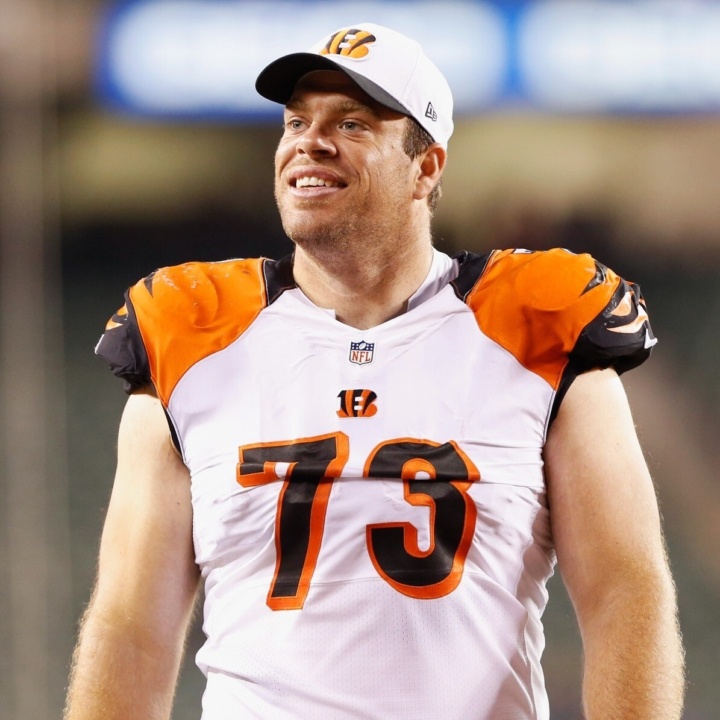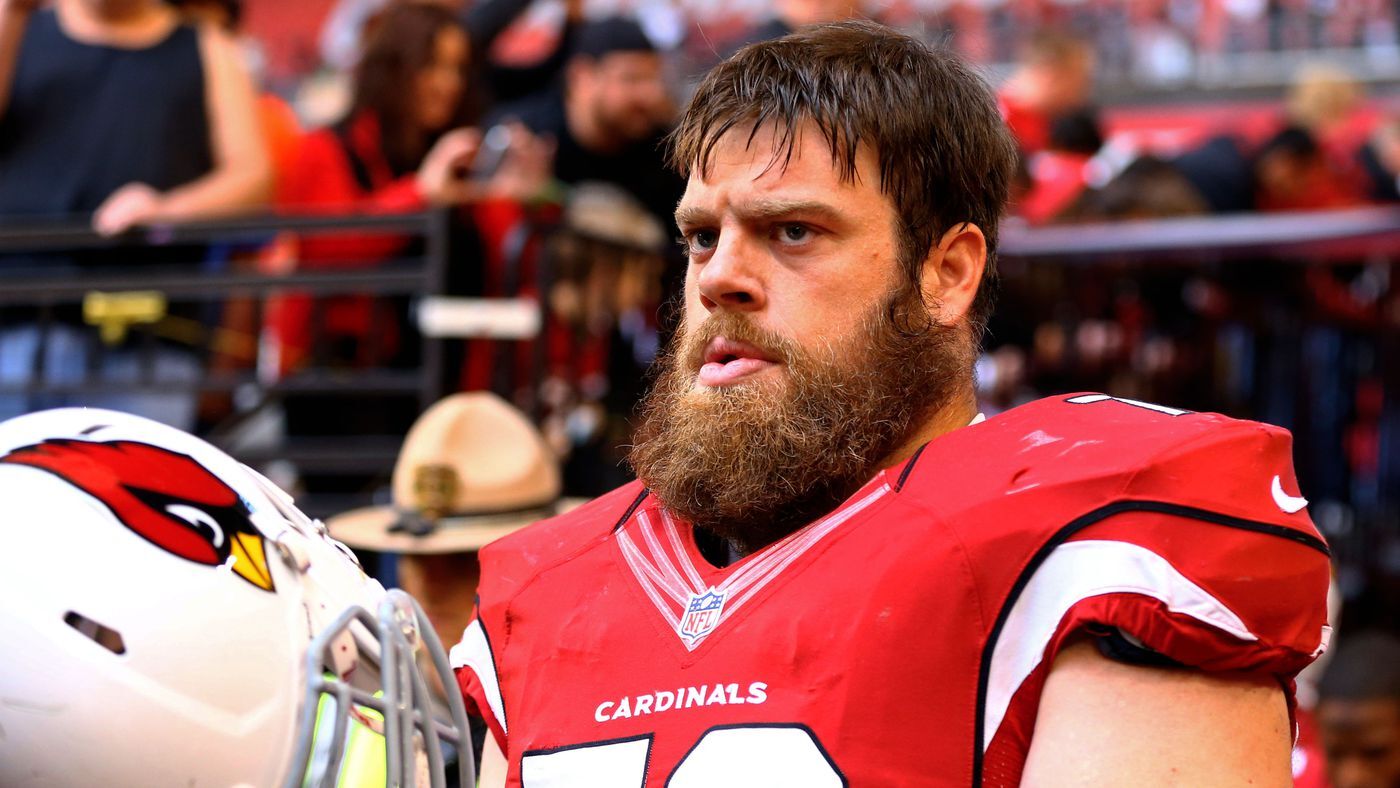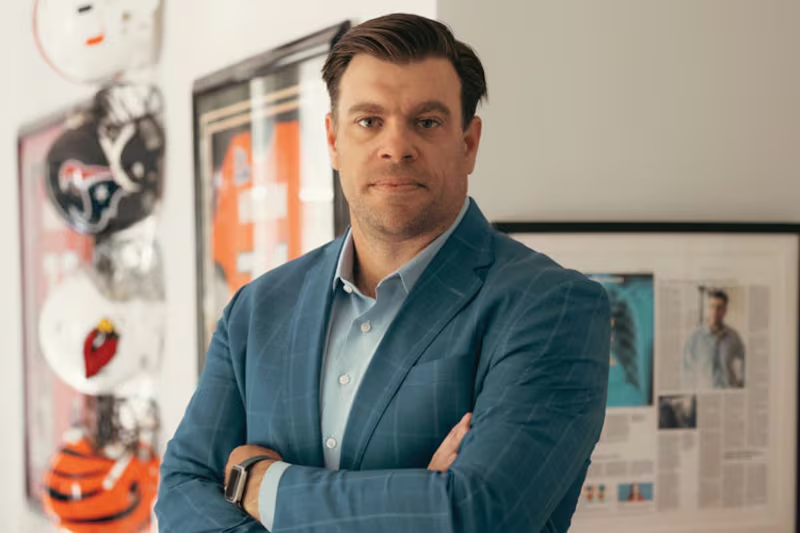
Catching Up With Former Player Rep: Eric Winston
Eric Winston is a former NFL offensive tackle who played 12 seasons with the Houston Texans, Kansas City Chiefs, Arizona Cardinals, Seattle Seahawks, and Cincinnati Bengals after a standout college career at the University of Miami. Known for his durability and leadership, he started over 100 games in the league. Beyond the field, Winston served as Player Rep before becoming President of the NFLPA from 2014 to 2020, playing a key role in negotiating the 2020 Collective Bargaining Agreement and advocating for player safety and rights. After retiring, he became Chief Partnerships Officer at OneTeam Partners, and he now is President of Winners Alliance where he is continuing his commitment to athlete empowerment and business innovation.

What inspired you to become a Player Representative?
For me, I saw it as a way to help my teammates. I didn't know anything about unions when I came into the NFL. I had only heard of them on the news or whatever. I didn't grow up around unions, so I didn't know much about them. There was a guy named Mark Bruner, who was an executive committee member and was a mentor of mine when I was a rookie. I would ask him a lot of questions and he kind of dragged me to my first meeting. At that meeting, I saw a bunch of people that were trying to help their teammates, and that was really inspirational for me and made me want to be involved.
What made you want to go further and hold a leadership position within the NFLPA?
I don't think there was anything other than the fact that I was continually asked to do more and asked to help in different ways. So it wasn't necessarily intentional or purposeful. It was one of those things where I said, “hey, where can I do the most to help, and where can I be the most helpful to my teammates?” And if it's doing that, then great. Again, it wasn't something that I was really aspiring to be, it was just more about the fact that I really enjoyed what I was doing, and I wanted to keep up.
What lessons and experiences did you take away from being a Player Representative and being a president?
If you want to talk about big macro types of takeaways, one is that you have to lead from the front. You can't dictate and say, "Oh this is good for everybody” but then it's not something you're willing to do. Whether it's policy, whether it's action, whatever is right. You have to lead from the front, and I definitely believe in that. Another thing is you have to speak your mind and lead with conviction. I think a lot of times you kind of get into roles of leadership and then you start looking around and saying, hey, “which way is the wind blowing?” And how can I make sure that I don't fall out of favor with people? That is by speaking your mind and leading with conviction. It's always helpful and healthy to challenge yourself, but I don't think anybody gets anything out of groupthink. I think making sure that you stand up and say what's on your mind is important, and quite frankly, that's why your teammates put you there to do that.

Why do you think more players should be involved or be active with the NFLPA?
I think every player should have some involvement obviously with the NFLPA. That might not be a leadership position, that might not be a Player Rep position, but there are plenty of ways that every player can help their teammates. You can be a player leader regardless of whether you're an elected rep or not. You have this body that looks out for the past, present and future of the game. When you think about it in the big picture like that, you're a small cog in the wheel, but you're also an integral part of the wheel, making sure it continues to move forward. I think the only way that happens is when everybody pitches in. I'll also say that even if you're on the selfish side of it, “well, what's in it for me?” you need to recognize that the only gains that have ever been made by players are when they stand together. When players stand together and stay united, that's when you see them get what they deserve. And when they don't, then I would tell you that's when you know they've taken a step back. So, I think those two big reasons should inspire anybody to at least want to have some involvement with the NFLPA, because what they are doing is very cool.
What is one piece of advice that you would have for players who are transitioning out of the NFL?
One is that you have to realize you're not retired, you just stopped playing football. You're anywhere from 25/26 to 34/35 years old, most likely. I had a 12-year career, and when I was done playing, I think I had just turned 34 or 35. There's a lot of life to be lived and there's a lot of fun and interesting things to do. You don't want to pigeonhole yourself and minimize yourself into this idea that you have this wonderful NFL career and that's the full book. It's just a chapter in the book. So, that's the first thing you have to realize is how many more years you really have, and how many more good years you really have. Then think about it as day zero then. Then the second one is, be very honest with yourself about what's important to you. I think that this is where I see guys struggle a lot is that they're not honest about what's important to them. That could be spending time with their kids, that could be making money, that could be serving the community, that could be teaching. It could be a wide range of things. It could even be that you really want to try to become a professional golfer. It doesn't matter what it is. What I see happening a lot is that a lot of guys say that one thing is important to them, but then they don't want to do it because something else is holding them back, and whatever is holding them back isn't an important thing. I think that's what I've noticed a lot is that a lot of guys aren't truthful with themselves about what's important. It's okay if it's, “hey, I want to be well known,” because there's some ego in all this. Or “I don't mind working hard. I really want to do something where I have a chance to make some money" right? There's nothing wrong with any of that. There's nothing wrong with going and working at the boys and girls club three or four days a week. There's such a wide range of things that guys can do when they're done playing that are totally legitimate, totally cool and worthy endeavors. To do that and to find that, you have to be honest with what your priorities are. I think that's the biggest thing that I would tell guys is to be really honest about your priorities, because once you're honest with yourself about that, then the rest is just some problem solving about what's going to get you there.
What are you doing now in your career now that you are done playing football?
I run a company called Winners Alliance. We license, market, and just really maximize athletes' IP (intellectual property), which is their name, image, and likeness. We work across different sports like tennis, cricket, track and field, and other emerging sports. Also, we do everything on the side of video games and trading cards too, like brand deals, creating lines of hospitality, and just creating opportunities for athletes to maximize their value.

What made you want to pursue a career that was still in the sports field?
I wouldn’t say that it was mandatory for me. I wasn't necessarily interested in it or felt that I had to be in it. You know, you put yourself out there and there's a confluence of events that occur where it’s the right time and the right place to make the right opportunity. I got that when I was leaving the NFLPA with a firm called One Team that I helped create, but now we’re at Winners Alliance, it's kind of in that same ballpark. I feel fortunate, I feel lucky to have been able to check a lot of those boxes we talked about. It definitely is a lot of fun.
How do you feel that the lessons that you learned playing football have applied to your post playing career?
I think that's one thing guys don't realize is that the soft skills that you learn in the NFL are so valuable outside of football and into the next step. I always just tell guys it's just a matter of them going and learning some hard skills that they've missed out on. This idea of what we would consider a normal workday, but a lot of people don't consider that a workday. So, the ability to suffer, quite frankly, I think is incredibly important. What we've gone through, the sacrifices that we've made to be great at something, just applying 70% of that will put you in the top 1% of almost any company. It's really a matter of going out and learning from a business. Give it some time, give it 6-8-10 months to a year and you'll learn the business. Once you learn the business, those soft skills, those intrinsic values that you carry with you, that you think are totally normal, will really help catapult you to where you want to be.
What's one piece of advice that you wish you got when you started your NFL career?
You hear it all, like, “enjoy your time”, or “it's going to go by fast.” When you're actually in it, the days are long, but the years are really short. I would tell everyone to embrace the daily grind. I didn't fully appreciate it until I got older, and I had a lot more yesterdays than tomorrows in the NFL. That's when I really appreciated the Wednesday and Thursday grind, and getting ready for games. I just really appreciated the whole aspect of that. It's okay to get lost in the grind, this is what you do to work now. This is a profession. It doesn't mean it has to be boring or a slog but realize that it's serious and you should be working your butt off. You should feel tired at the end of the day. You should feel exhausted, that's okay. I would never look back and say, “man, I wish I wouldn't have worked that hard.” I always look back and say, “I wish I would have done more, found more ways to grow.” With those two things I think together, you can have that mindset of just embracing every day and enjoying every day, even if it's a camp day, even if it's a Wednesday, even if your body hurts, enjoy it. You're lucky to be there. You've earned it, but you're also fortunate, and you never deserve it. If you continue to approach it like that, I think you'll have a healthy mindset.
What does the NFLPA fraternity mean to you?
To me, it's one of those elite brotherhoods that is really rare. It's a brotherhood in a community of folks that you share a special sacrifice with, and even if the guy came 20 or 30 years before you, you both can look at each other and say that we've gone through the same thing and there are just very few walks of life where you can actually do that or say that, with somebody. I think that it’s really special and I think it's really cool to know that no matter what year you're in, that you've done something similar to that guy. You might not have ever met each other before, but you share a lot of the same things.